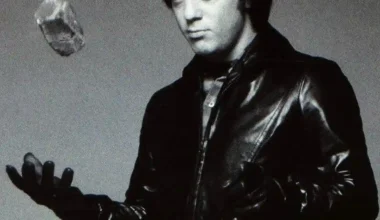Robert Plant believes any band that lasts has something meaningful to say. While superficial acts may churn out a few decent hits, those in it for the long haul aim to make music with a deeper purpose.
Before he helped redefine rock with Led Zeppelin, Plant felt that some British bands, like Gerry and the Pacemakers, fell short of what rock should be.
The essence of rock and roll has always been elusive. While some artists stuck to blues roots, like Little Richard, others, such as Buddy Holly and Carl Perkins, blended pop and country into their sound.
Plant respected those who pushed boundaries but didn’t find himself drawn to that style. Instead, he gravitated toward raw blues, inspired by artists like Sleepy John Estes.
Reflecting on the pre-Beatles era, Plant saw a music scene drained of energy. Rock’s pioneers were fading: Buddy Holly and Eddie Cochran had died, Elvis Presley was in the army, and Little Richard had turned to preaching.
What was left, according to Plant, were watered-down versions of rock, like Pat Boone’s safe, sanitized covers of songs by artists like Presley.
Even though The Beatles revitalized the music scene, bands like Gerry and the Pacemakers still struck Plant as painfully bland. Despite their modest hits, including “Don’t Let the Sun Catch You Crying,” Plant saw them as bands simply chasing fame without substance.
He was embarrassed by the state of British music at the time, telling Entertainment Weekly: “America is a multiracial society, and all of these various racial and cultural implants had a fantastic effect on music.
I can’t find anything in English music that actually touches anything half as seductive or relevant. I was always amazed that Herman’s Hermits and Gerry and the Pacemakers, all that rubbish of the so-called British Invasion in the ’60s, had such an effect on people.”
Led Zeppelin’s arrival on the scene rendered bands like the Pacemakers obsolete. As far as Plant was concerned, songs like “Ferry Across the Mersey” couldn’t compete with the raw power of Zeppelin’s heavier, blues-infused sound, with tracks like “Good Times Bad Times” easily overshadowing the lightweight hits of British Invasion bands.
In the end, Led Zeppelin took American musical influences and made them heavier, forging a new path in rock for future generations. Plant didn’t claim to be creating some revolutionary new art form, but he was sure of one thing: what Zeppelin was doing had far more substance than anything the Pacemakers ever offered.







